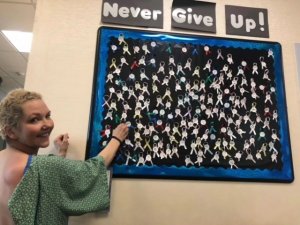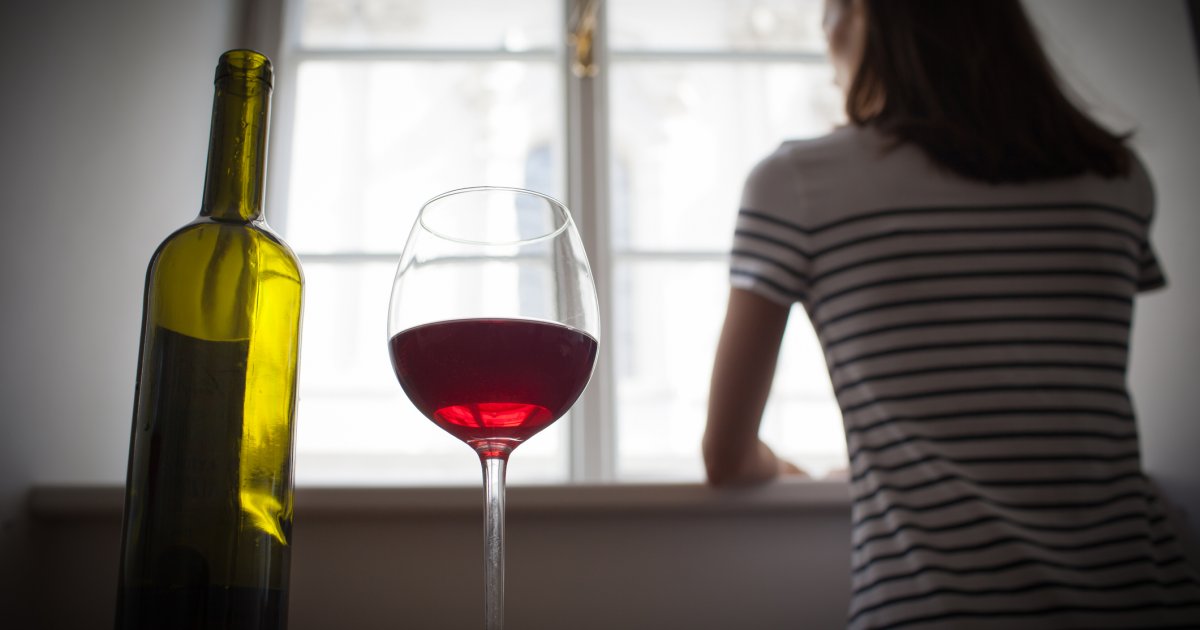Avoid Alcohol as a Coping Mechanism
- Breast cancer survivor and recovering alcoholic Victoria English Martin, is helping others to find coping mechanisms that exclude reaching for the bottle.
- Dealing with a cancer diagnosis can be overwhelming so it’s important to continually develop healthy habits during those challenging times.
- The way you frame your cancer journey, your approach, makes a huge difference in how you will handle the journey.
Victoria English Martin, a nutritionist and wellness coach in Denver, Colorado, used alcohol as an escape to deal with traumatic events in her life such as her divorce and her mother's death. She tried to manage her alcohol dependence on her own and had been alcohol-free for several months when, in 2018, she was diagnosed with breast cancer at the age of 47.
Read More Her treatment was lengthy and brutal. And she fell into a deep depression.
Her treatment was lengthy and brutal. And she fell into a deep depression."Once treatment was over and the trauma hit me, I briefly returned to drinking," she tells SurvivorNet. "The shame of poisoning my body after fighting for my life was paralyzing. Since alcohol had become my default for dealing with unresolved physical and emotional pain, it was only natural that it happened."
Related: Treating Depression After a Cancer Diagnosis
She recalls the moment she knew she had to regain control of her life. "I went to one of my checkups and my oncologist says, 'I know you're in pain, but this isn't going to turn out well for you. I have seen you fight too hard,'" Martin tells SurvivorNet. "At that point, I surrendered. I knew whatever I had to do, whatever I had to feel, I could survive that. I knew I would not survive drinking long-term."

Martin, a mother of four, wants to use her personal experience with alcohol abuse to bring awareness to maladaptive behaviors such as self-medicating to get through a major life change. She is now a certified recovery coach on addiction issues, working with clients to change their unhealthy habits with alcohol, food, or shopping through her "After the Crisis" coaching program.
Related: Dancing Her Way to Recovery How Zumba Helped Cancer Survivor Cope
"My body is beautifully broken. I honor it every day…using my brain, empathy and intelligence to serve others," Martin tells SurvivorNet.
Victoria Martin, a breast cancer survivor and wellness coach, is using her own experience to help others with alcohol addiction or other unhealthy habits.
6 Actionable Steps to Deal With Stress Without Alcohol
Below Martin shares 6 tips on how to stay clean or break an unhealthy habit while dealing with the stress of a cancer diagnosis or treatment:
- Mindset: The way you frame this journey of change makes a huge difference. Instead of looking at it like this is something you have to give up, try making a tiny shift in your language and thinking that still feels true. Have an open mind and think about what you will gain and learn, rather than approaching from deprivation.
- Be Curious: If you are trapped in a habit, which is no longer serving you, the shame cycle is all too familiar. Does it feel like a tired tape playing over and over in your head? What would it feel like to experience some new thoughts and feelings to replace the worn out ones? It is empowering to realize that you can change your patterns and see what is on the other side.
- Understand This is Not the Garden of Eden: Thinking of anything as "forbidden fruit" creates even greater cravings, feelings of resentment and deprivation. You are simply getting curious and creating changes that you get to make. Also, emotional attachments to our habits are very real, so it is perfectly healthy to acknowledge and honor these feelings.
- Create a Toolbox: Life can be hard. We don't always get to choose our "hard," but in this situation, you do. Habits, which no longer serve us, did serve a purpose at some point, and that is part of why we use them past their expiration date. You may be surprised at how uncomfortable some moments can be, but you can learn tools and tactics that will make it easier than staying stuck.
- Find Your People: You are not alone. Whatever your "thing" is (maladaptive coping skill), you are not the first one to use it. Luckily, there is strength in numbers and a community where you can connect with people who understand what it is like. Sharing your experience won't just help you feel less alone, but you will be helping others.
- Drop the "Shoulds": One of the quickest ways to be defeated is by "shoulding ourselves." Expecting to be perfect and tearing ourselves down will only lead to our maladaptive habits gaining more of a foothold. Practice speaking to yourself the way you would speak to a friend, and see how kindness gets you moving in the right direction.
Learn more about SurvivorNet's rigorous medical review process.


